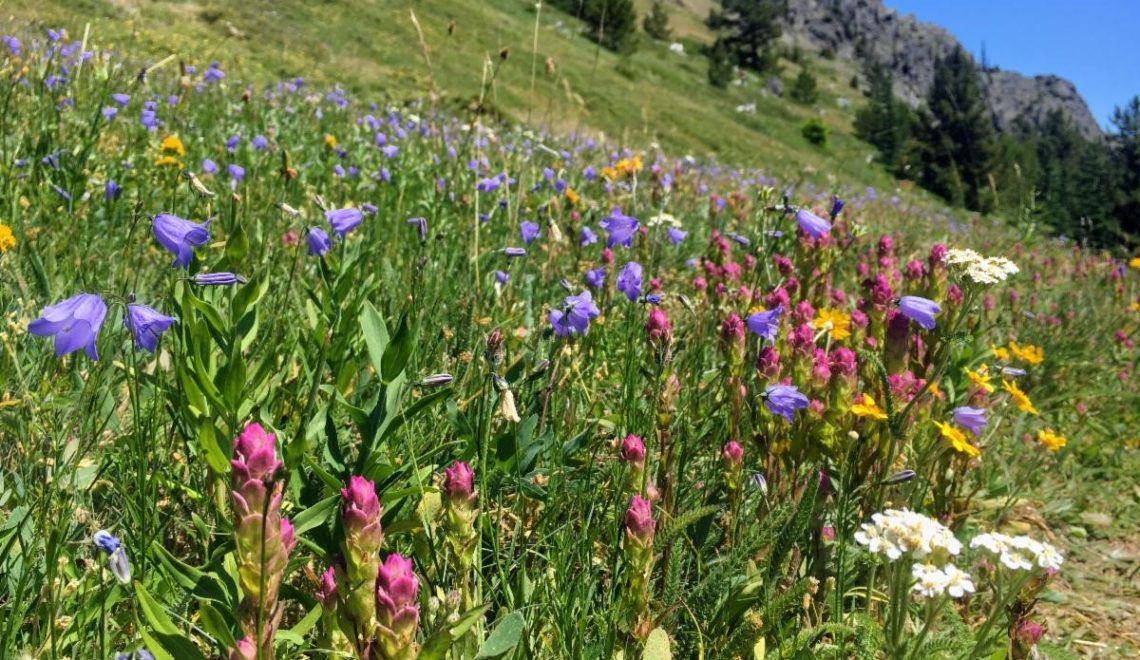
Adaptibility in the Alpine
Climate change is causing not only sustained trends in average temperatures, but also higher frequency and intensity of extreme events, such as the historic heat wave experienced this summer.
These changes pose serious threats to biodiversity, particularly in vulnerable environments, such as the alpine zone.
The ability of an organism to change in response to environmental conditions is referred to as phenotypic plasticity. While the alpine environment is fragile, the species adapted to live there have a high tolerance for extreme conditions. However, as future weather extremes occur against a backdrop of warmer temperatures, relatively little is known about how alpine plants plastic responses will be able to tolerant extreme heat events.
After the unprecedented heat event this summer in the Olympic Mountains, it is hard to say how the life cycles of our alpine plants will be or have been impacted. But we can look at studies conducted in different parts of the world for some insight.
A study, published in the journal Global Change Biology by an international team of researchers looked at plants from alpine habitats all over the world and surveyed their high-temperature tolerance.
The scientists exposed leaves to increasing temperatures during controlled tests and were able to pinpoint the exact temperatures where leaf metabolism becomes damaged by heat. They found that two critical processes for plant growth and survival, namely photosynthesis and leaf respiration, were damaged by high-temperature extremes.
“The study suggests high temperatures during heat waves will damage a plant’s ability to function, particularly in sun-exposed and upper canopy leaves” said lead author Dr. Odhran O’Sullivan.
The study also found that, “the potential for high-temperature heat-damage is greatest during periods of drought, when plants are unable to use water to naturally cool leaves.”
Another study conducted by University of Pavia Department of Earth and Environmental Sciences, “assessed the impacts of heat waves on the seed germination of 53 high mountain plants from the Northern Apennines (Italy). The seeds were exposed to laboratory simulations of three seasonal temperature treatments, derived from real data recorded at a meteorological station near the species growing site that included two heat wave episodes. Moreover, to consider the effect of increasing drought conditions related to heat waves, seed germination was also investigated under four different water potentials. In the absence of heat waves, seed germination mainly occurred in spring, after seeds had experienced autumn and winter seasons. However, heat waves resulted in a significant increase of spring germination in 30% of the species and elicited autumn germination in 50%. When heat waves were coupled with drought, seed germination decreased in all species, but did not stop completely.
Our results suggest that in the future, heat waves will affect the germination phenology of alpine plants, especially conditionally dormant and strictly cold-adapted plants, by shifting the emergence time from spring to autumn and by increasing the proportion of emerged seedlings.
The detrimental effects of heat waves on recruitment success is less likely to be due to the inhibition of seed germination per se, but rather due to seedling survival in seasons, and temperature and water conditions that they are not used to experiencing.“
Lucky for us, the Olympic Mountains still offered a spectacular wildflower viewing experience this summer. Head up there soon if you can, the show goes on!
The Dungeness River Audubon Center will continue our exploration and observations of late season blooms and seed pods by adding an additional wildflower walk.
If you would like to join us on our journey to better understand the fragile yet robust communities of Deer Park, Olympic National Park, sign up now!
Register for either Tuesday, August 31st or Wednesday September 1st.
We will caravan/carpool from downtown Sequim at 9 a.m. and will return by 4 p.m.
Link to register for Tuesday:
Dungeness River Center – Railroad Bridge Park, Sequim, WA (neoncrm.com)
Link to register for Wednesday:
Dungeness River Center – Railroad Bridge Park, Sequim, WA (neoncrm.com)

(Anemone occidentalis)

(Lomatium nudicaule)

